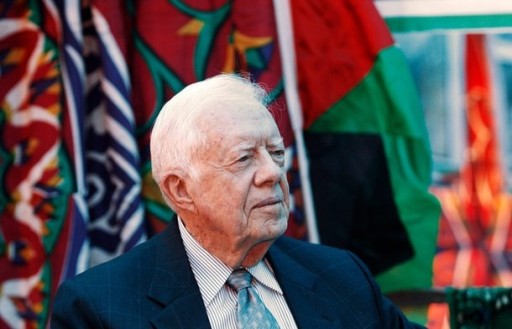
- FILE : Aung San Suu Kyi holds a sign reading "I love the public too" while addressing supporters outside her National League for Democracy party headquarters in Yangon November 14, 2010. The pro-democracy leader called for freedom of speech in army-ruled Myanmar on Sunday and urged thousands of supporters to stand up for their rights and not lose heart, indicating she might pursue a political role. (Getty Images / REUTERS/Soe Zeya Tun )
In an interview to Haaretz, recently released Burmese opposition leader calls for peace between Israelis and Palestinians.
November 25, 2010 (KATAKAMI / HAARETZ) _-- Abducted IDF soldier Gilad Shalit should stay strong and remember that he is not forgotten, while Israelis and Palestinians should consider whether it wouldn't be nicer to just be friends, Burmese opposition leader Aung San Suu Kyi told Haaretz in an exclusive telephone interview this week.
Suu Kyi, who was released earlier this month after having spent most of the last two decades under house arrest, said she has seen some changes for the better in her country since her last interlude of freedom.
She said that cell phones, for instance, have boosted her pro-democracy movement by allowing people, especially the young, to be better informed about what is happening both in their country and around the world.
"The number [of cell phones in Burma] will only increase, and this is for the good," she said.
Nevertheless, she stressed, more than 2,000 political prisoners remain behind bars in Burma (which is also known as Myanmar ), and real change is unlikely to come until they are free. She therefore urged the international community to strive for their release.
In a previous interview, conducted in 1997, Suu Kyi had told me she was very moved by Natan Sharansky's memoir about his years as a Prisoner of Zion in the Soviet Union. In light of that, I asked whether she had any message today for Shalit, who has now been held captive for more than four years without being permitted any visitors, even from the Red Cross.
"I would like to send a message to all political prisoners all over the world," she responded. "Keep strong and don't forget that there are many, many people who have you in their hearts and in their minds and would do whatever they can for your release."
Suu Kyi also said she is "very, very concerned about the hostilities going on now" between
North and South Korea. "If we are a global village, we can't get away from what is happening anywhere in the world," she said.
Given this, I asked whether she had any message for Israelis and Palestinians.
"I just wonder whether they could not sit down and think that it would be so much nicer if they could be friends," she said. "It seems a very simple thought, but sometimes great things begin with very simple thoughts." (*)
